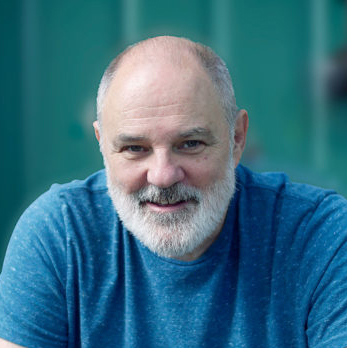All good things must come to an end.
The phrase popped in my head last night when I got an email from Pat Walters.
Have anything coming for tomorrow? Very well might be our last post together. Ah … damn.
Damn is right.
For the past several months, Pat has been editing my work for Poynter Online, along with Leann Frola. They are the latest in a string of Naughton Fellows, named after our former President Jim Naughton, who created the job to staff our Web site, and participate in the summer reporting and writing program. A plaque by Poynter Online’s door lists their names: Tran Ha, Ellen Sung, Robin Sloan, Matt Thompson, Elizabeth Carr, Meg Martin.
Pat and Leann, the latest to join that list, are leaving soon, headed to exciting new work.
Pat will be off to graduate school at the University of Memphis, where he will study creative non-fiction — or, as Pat prefers to call it, narrative journalism.
Leann leaves a week later for the Dallas Morning News, where she will apply her remarkable skills as a copy editor.
They are both very talented and, like all good editors, have made my copy better than it was when I delivered it. (Editor’s note: To spare Pat and Leann an awkward assignment, someone else edited this piece, which explains any errors you might find.)
What strikes me most about Pat and Leann is not their considerable brain power, creativity, patience and helpful natures.
Another word comes to mind: attitude.
ATTITUDE IS EVERYTHING.
Attitude is all, especially when a craft is concerned. We can easily spend our lives mastering the craft of reporting and writing.
- Given that truth, attitude matters as much as, if not more than, talent.
- Attitude makes the difference between giving up and sticking with a story.
- Attitude is what’s behind making one more phone call, writing one more draft, revising one more time.
- Attitude is what’s behind a collaborative relationship rather than a toxic one.
- Attitude is what makes the difference between failure and spectacular success.
In 1996, I had the good fortune to interview David Maraniss for that year’s edition of the “Best Newspaper Writing.” Maraniss won that year for deadline reporting. There was something I wanted to know. Here he was, a Pulitzer Prize-winning reporter who often devotes months to investigations and series at The Washington Post, and writes best-selling biographies. So what was he doing covering breaking news?
His answer surprised me. It turns out that when news breaks, he’s one of the first to pitch in.
“Usually when there’s some kind of major event happening, I either volunteer to help out, or they ask me … Even if I’m doing a series, I say, ‘Look, if you guys need me, I’d be happy to do something.’ I try to be in a position to say yes, and I try to volunteer so that I can have enormous freedom the rest of the time.”
A case in point: In April 1996 a plane carrying Commerce Secretary Ron Brown and crashed on a Croatian hillside, killing all on board.
Need me? Maraniss asked the desk. No, we’re fine, editors said. Thanks. So back he went to his project. But a few days later, an editor came up. “David, they’re bringing the bodies back to Dover Air Force Base. Can you head over and cover it for us?”
ATTITUDE PAYS OFF.
It was a thankless task. The weather was cold and miserable. Maraniss wound up with pneumonia. But he covered the story like the most eager intern. The story was part of the package that won him the $10,000 Jesse Laventhol award for individual deadline reporting.
“I find that so many reporters keep banging away at their editors and having frustrating confrontations about what they have to do or don’t have to do,” Maraniss told me. “I’ve always found it much more effective to do what I want to do by doing some things for them.
“I like newspapers, and I love to write on deadline. And so I volunteer. But one of the reasons I do that is so that there’s a fair exchange, where they know that I’m always around when they need me, and then in return, I get a lot of freedom the rest of the time to do what I want to do.
As Pat and Leann prepare to leave Poynter, I know how much I’m going to miss them — as people, professionals, colleagues and afficionados of Coney island chili dogs. More than that, I’ll miss them as journalists who, whether they know it or not, are bound for glory because of one thing: attitude.






